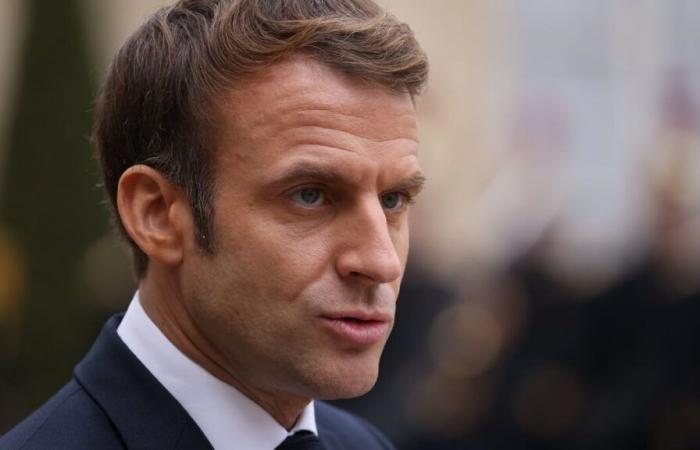After qualifying the election of new President Joseph Aoun as “hope for change” for Lebanon and welcoming the appointment as Prime Minister of Nawaf Salam, Emmanuel Macron will visit Lebanese territory on Friday, announced the country’s new presidency Tuesday afternoon. Joseph Aoun discussed with French Ambassador to Lebanon Hervé Magro “preparations relating to the visit that French President Emmanuel Macron plans to make to Lebanon next Friday,” the presidency said in a statement.
Mr. Macron will reiterate to Lebanese leaders “his wishes for complete success in their mission: to form, as soon as possible, a strong government, capable of bringing together Lebanon in all its diversity, in order to carry out the reforms essential to recovery. of the country,” the statement added. “This trip will also be an opportunity to work on the full implementation of the ceasefire (…) and to reiterate France’s commitment within the framework of the verification mechanism,” according to the same source.
Earlier on Tuesday, Nawaf Salam said he was reaching out to all political parties to help “save” his crisis-hit country, before holding talks to form a government. And many challenges await the future government of Mr. Salam, who promised to open a “new chapter”, starting with the consolidation of the fragile ceasefire concluded at the end of November between the pro-Iranian Hezbollah and Israel after two months of open war.
It was also the Lebanese presidency which announced that Emmanuel Macron, whose country participated in diplomatic efforts to unblock the election of a Lebanese president, will visit Beirut on Friday. The Élysée, which confirmed this visit, specified that this trip aimed to “mark France’s unwavering commitment to support Lebanon, its sovereignty and its unity”.
Huge challenges for Lebanon
“I am not a man who excludes, but a man who brings together,” Mr. Salam said in a speech from the presidential palace, saying “reach out to everyone to begin together the mission of rescue, reform and reconstruction “. Parliamentary consultations to form a new government will begin on Wednesday, an exercise that can take months in this politically divided country. “We hope the time frame will be much shorter,” Mr. Salam said. “We are starting a new era and want a quick new start, because the tasks facing the country cannot wait.”
Hezbollah has previously opposed Mr. Salam’s ascension to the post of prime minister, but the movement has been weakened by the war against Israel. This enabled the election last week of President Joseph Aoun, under pressure in particular from Washington and Riyadh, and the rapid appointment of Mr. Nawaf on Monday, according to analysts, confirming the ongoing overhaul of the Lebanese political landscape previously dominated by Hezbollah .
“The main challenges today are to deal with the consequences of the recent aggression,” Mr. Salam said, after the war between Israel and Hezbollah destroyed swathes of the south and east of the country, and the southern suburbs of Beirut, stronghold of the pro-Iranian group. He pledged to rebuild these regions, “ensure the authority of the Lebanese State reigns over its entire territory”, and “work seriously towards the full implementation of Resolution 1701 (which ended in 2006 to the previous conflict between Israel and Hezbollah, Editor’s note) and all the terms of the ceasefire agreement.
The specter of the Beirut explosion in 2020
The agreement stipulates that only Lebanese troops and the United Nations Interim Force in Lebanon (UNIFIL) can be armed in the south of the country and mandates the withdrawal of Israeli troops from Lebanese territory. “No obstacle should be made to the formation of the government,” President Joseph Aoun said on Tuesday, calling for a rapid solution, during his meeting with a delegation from the Supreme Shiite Islamic Council. He stressed that this would pave the way for “transparent reconstruction.” »
Mr. Salam will also have to launch reforms that the country desperately needs after more than five years of unprecedented economic crisis. He stressed that the future government will have to “design a global program to build a modern and productive economy”, previous cabinets having not implemented the reforms requested by the international community to recover the country.
VideoBeirut: the damage from the explosion seen from the sky
“We have lived under failing management, marked by cronyism and riddled with corruption. It is time to reject it and put it at the service of the people,” he declared, promising “an efficient and just State. » According to him, “all this cannot be discussed before we do everything possible to bring justice to the victims of the explosion at the port of Beirut” in 2020. This gigantic explosion left more than 220 dead and ravaged entire sections of the capital, but no concrete progress has so far been made in the investigations into its causes and circumstances, due to political interference.






